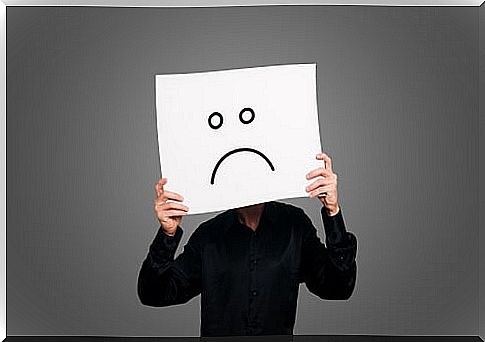Realistic Or Pessimistic? Find Out What Kind Of Person You Are

Have you ever been told that you are pessimistic? If the answer is yes, but you do not agree and you want to know if the arguments you use are valid, this article is for you. Being realistic is often confused with being pessimistic, and they are two very different types of personality traits that lead to misunderstandings. And you, what kind of person are you?
First of all, it is important that you know that the tendency to see the negative side of situations is normal and has an evolutionary and adaptive reason: to protect ourselves from what can potentially harm us. In other words, for our psychological protection system it is more interesting to know what goes wrong and what can harm us, than to identify aspects that go well and benefit us. However, when a person only sees the negative part of what is happening, they become pessimistic and the adaptive function of detecting the “negative” becomes a problem, a drag on their mood.
Likewise, it should be noted that there is a middle point between being pessimistic and being optimistic (seeing everything in pink), this middle point is realism. To help you understand the differences between realism and pessimism, and discover what kind of person you are, we explain each of these concepts below.

What is a pessimistic person like?
When a person is pessimistic, they have a cognitive-attentional bias (error) that the psychologist Aaron Beck called selective abstraction. That is, through this bias what happens is that pessimistic people only attend and retain certain types of information: negative. Thus, in the case of someone pessimistic, what happens is that they only attend and remember negative information. Many times without realizing it, he filters the information and only appreciates in detail what is negative.
On the other hand, if in your case you identify with pessimism and you think that you frequently make this cognitive error, do not be bitter! This error has a solution. There are scientifically proven psychological techniques, such as cognitive restructuring or cognitive fusion, that help people to distance themselves from thoughts and become aware, to modify these psychological automatisms and negative thoughts.
To discover what kind of person you are, you have to bear in mind that pessimistic people, when faced with a difficulty, anticipate the worst result, without necessarily being the most likely. That is, they place their negative expectations “on what is to come.”
In this sense, being pessimistic (in part) is due to having a personality type that is anxiously based. We are talking about people with a high level of “trait anxiety” and therefore see life in a negative way. When a person is pessimistic, he unconsciously tends to set limits, think the worst and be more sensitive to uncertainty, which he resolves by “expecting the worst, to be prepared.”
Furthermore, there is a key aspect to consider if you want to know what kind of person you are: if you are pessimistic, you automatically tend to see the negative aspects even in positive events and situations in your life. In other words, pessimistic people even in those moments in which they have tried very hard for a project or a goal, and they achieve it successfully, they continue to see what has not gone well or that has gone bad. If you are pessimistic, then you are a person who finds it difficult to enjoy their achievements because you lose yourself in focusing too much on the aspects that could have been improved.

And then … what is a realistic person like?
First of all, the most distinctive characteristic of realistic people is that they do not usually anticipate value judgments. That is, they wait to see how the events unfold to say what they think, what they expect to happen and once they have real data about the situations, they make a judgment (for example: “it’s great” or “this is terrible ”). In this way, realistic people maintain a more neutral position in the moments before the outcome of events and are able to keep their expectations adjusted to what could be expected in the reality they live.
Likewise, realistic people not only prepare mentally for what could go wrong (taking into account the objective facts), but also prepare themselves to enjoy what can go right. That is, they are capable of preparing for almost any type of result, they know how to enjoy their achievements and they are prepared for their failures: these do not prevent them from continuing to achieve their goals or make them distracted from their path.
At this point, if you realize realistic people are characterized by not being catastrophic and by assessing in a more accurate way the positive and negative aspects of situations and problems. It is this ability to assess situations one of the most distinctive characteristics of realistic people.
Finally, if when discovering what type of person you are, you have found that you are pessimistic, I want to remind you that a psychologist can help you change these aspects of your personality that prevent you from evaluating the facts of your life at a midpoint, without catastrophizing or selective abstractions of the information you receive. In addition, looking for a personal change towards realism can be a very good goal for the next year, do you dare?









